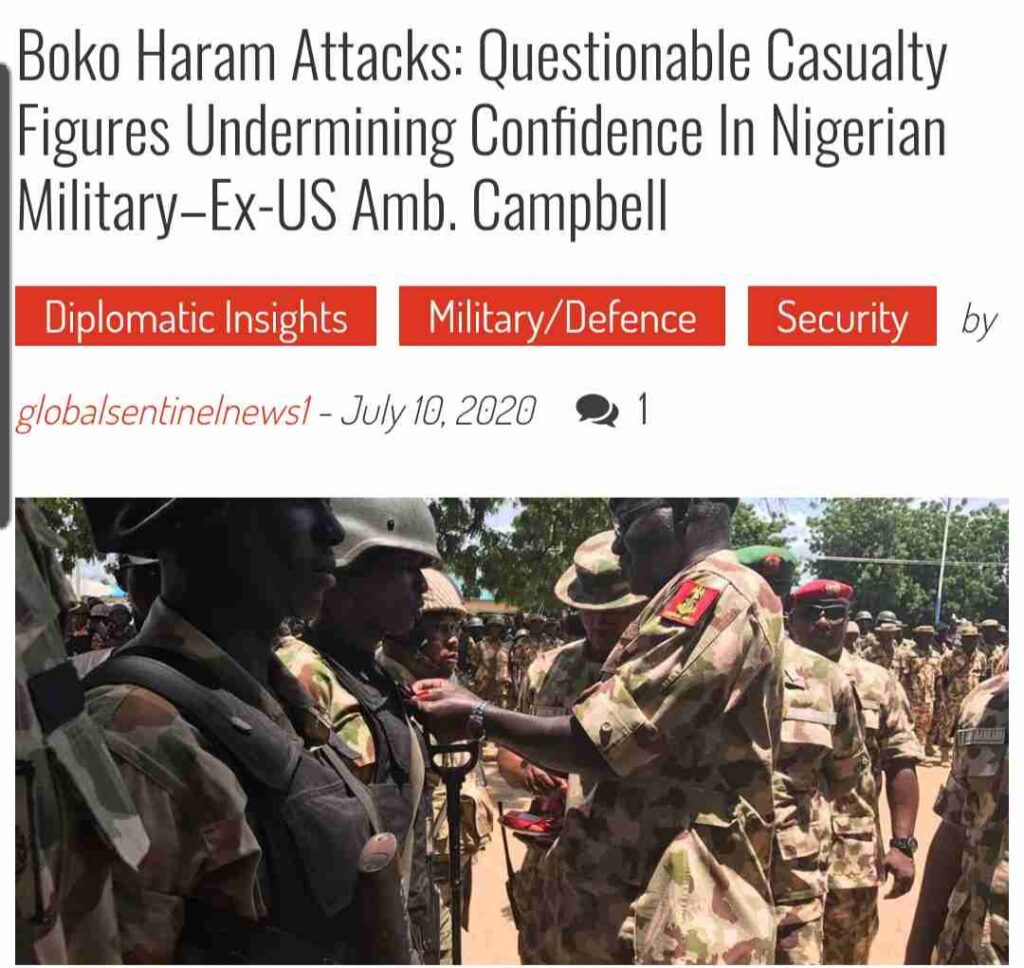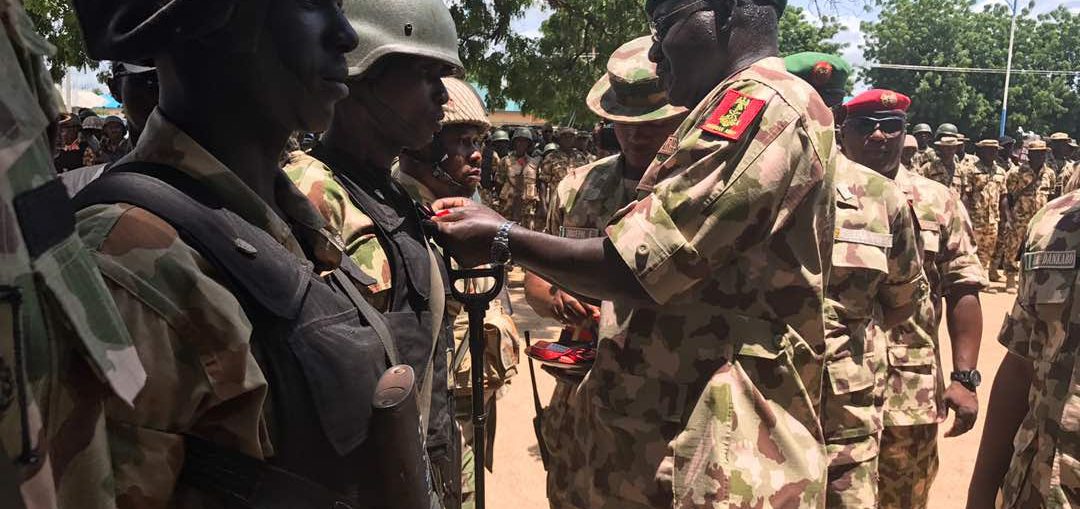•Says military official accounts, statements lack credibility
Senator Iroegbu
The former United States Ambassador to Nigeria, Mr. John Campbell, has questioned the credibility of the casualty figures being presented by the Nigerian military to the public.
Campbell accused the military of cover-ups via his Twitter account on Friday in a follow up to the article he co-authored with Mr. Jack McCaslin via Council on Foreign Relations entitled: ‘Nigerian Army Statements Bely Facts on the Ground in Northeast’.
Also read:Boko Haram: Damboa Ambush Death Toll Rises to Over 38 Nigerian Soldiers, 60 Others Missing
According to him, “the frequent disconnect between official Nigerian statements and the reality on the ground in the fight against Boko Haram continues to undermine confidence in the military”.
The article reads: “Nigerian army spokesmen have announced a series of successes against Boko Haram and that terrorism had been significantly weakened in the Lake Chad Basin. But such announcements lack credibility.
“According to the Nigeria Security Tracker, the last two years have been deadlier than any other period for Nigerian soldiers since the Boko Haram insurgency began in 2011. On Tuesday, Boko Haram killed thirty-seven soldiers in a deadly ambush, though military spokesmen claimed only two soldiers were killed. Soon after, videos circulated showing ostensible survivors cursing the Army and Chief of Army Staff Tukur Buratai.”
“Last Month, Boko Haram released a video showing the execution of a Nigerian soldier and a policeman. Another video showed five kidnap victims pleading for their freedom, and a third extended fraternal greetings to Boko Haram fighters in the nearby states of Zamfara and Niger.
“The media in the northeast is restricted and military spokesmen lack credibility. They often undercount casualties and inflate the number of terrorists killed. The government in Abuja frequently states that victory is at hand. Hence, accurate information is hard to come by. The reality appears to be that the Nigerian army is able to secure Maiduguri and the larger towns. It has consolidated its forces into fortified bases in these population centers in part to reduce military casualties. It can even clear episodically certain rural districts. But it is not able to retain the territory it clears nor the territory around cities and towns. In this way, insurgents have at times effectively cut off ground travel to these cities and towns from the rest of the country.”
“Buratai appears to recognize this reality. In an interview with Nigerian media, he commented that Boko Haram was hard to defeat because its operatives were blended into the population. He suggested that defeat of the jihadi insurrection could require many years. But, the frequent disconnect between official statements and the reality on the ground continues to undermine confidence in the military.”
Reacting to this, a conflict Reporter and Editor-In-Chief of HumAngle, Mr. Ahmad Salkida, explained that the media in the Northeast Nigeria, is restricted and agreed with Campbell and McCaslin that “military spokesmen lack credibility”.
According to Salkida, the official statements often undercount casualties and inflate the number of terrorists killed, adding that “the government in Abuja frequently states that victory is at hand.”
He added that his medium as well as few others, is changing the coverage of insecurity in Africa, particularly in Nigeria.
“We can no longer afford the embarrassing cover ups by officials while they brush aside the loss of thousands of precious human lives. HumAngle also believes strongly that both the reporting and management of these crises must be done responsibly and transparently. Saving human lives must replace saving the face of the political & security leaders in Abuja,” he stated.
Meanwhile, efforts made to get reaction from the Coordinator of of Defence Media Operations (DMO), Defence Headquarters (DHQ), Maj-Gen. John Enenche, yielded no results as he is yet to respond to the inquiries.


